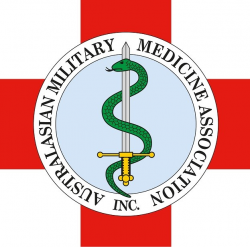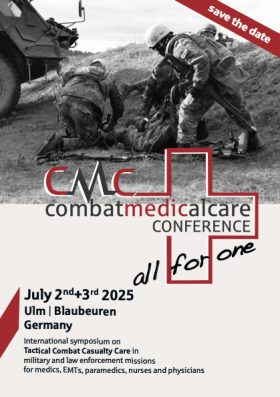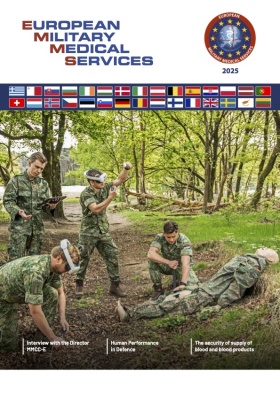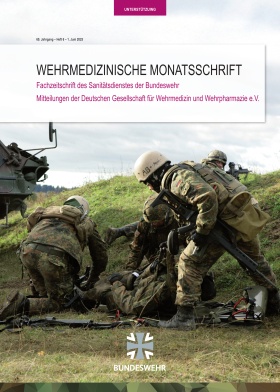
Article: C. ZECHEL, S. BRUNS, N. HANSSEN (GERMANY)
Interdisciplinary Counseling Program
Holistic support and advice for wounded military members and their families
The German Armed Forces (Bundeswehr, Bw) offer a wide spectrum of medical and psychological treatment for soldiers as well as social, spiritual and legal counseling. However, family members of wounded or psychological traumatized soldiers, former soldiers and the bereaved of fallen soldiers are rarely integrated in these methods of support. They often face multifarious problems caused by the affection or the death of their relatives all by themselves.
The following article informs about a new supporting program of the Bw not only for those in active service but also for their families, children, relatives and the bereaved. This program is called the “Interdisciplinary Counseling Program”.
Introduction
Since the 1990s the Bundeswehr (Bw) takes part in NATO operations and missions abroad, which often cause high physical and mental stress for those who are involved. As a result of this development an increasing number of German soldiers returning from duty in operations abroad face physical or mental illness. However, the risk of being wounded or traumatized does not only occur in operations abroad but also during training on military training grounds or in barracks at home. Once being physically wounded or affected by a traumatizing event these soldiers are treated by the Medical and/or Psychological Service of the Bw.
The Bw offers a wide range of ambulatory treatment as well as in-hospitaltreatment in five Military Hospitals. In addition to these forms of treatment the “Center of Military Mental Health” was founded at the Federal Armed Forces Station Hospital Berlin in 2010. It combines the medical and psychological treatment with science and applied research on mental diseases. Establishing this center meant a major breakthrough in improving the knowledge especially on Posttraumatic Stress Disorder (PTSD).
First steps to a pilot scheme
At the same time in 2010, the Federal Ministry of Defense (FMoD) assigned a special program to integrate not only those who serve in the army but also their families, children, relatives and the bereaved, who lost their loved ones. This was the beginning of the so called “Interdisciplinary Counseling Program”. Within the FMoD the consultants of the Department of Medical Services and the Department of Psychology created a concept of a one-week program during which extended help for families and the bereaved would be offered. After developing a first pilot scheme, the next important step was to establish the legal and the budgetary framework for this program.
These challenges having been solved, the pilot scheme finally began in the year 2011. The first three sessions of one week each took place at the Military Hospital of Westerstede. Up to sixteen adults and children were able to take part in each program. Within one week psychological, social, spiritual and legal counseling was offered to the participants on a daily basis. Career guidance, relaxation exercises and a recreational program were included. Every single week was evaluated by the participants. Due to the feedback of several participants it appeared that the expertise of the team in support and the concept were highly appreciated and found to be excellent. However, the evaluation of the venue showed clearly that a Military Hospital was not the right place to host wounded and traumatized participants. The participants felt uncomfortable within the Hospital being confronted with the clinical pictures of other patients. As a consequence, the last of the pilot schemes took place outside a military property in a recreational facility. This turned out to be a fundamental improvement for the program and obviously it was the right decision. Choosing a recreational facility, the atmosphere for all participants was much more comfortable and more convenient. And even for the supporting team the recreational setting offered more opportunities to make the program as pleasant as possible considering all needs.
Implementation of the “Interdisciplinary Counseling Program”
After termination of the pilot scheme at the end of 2012, the final concept of the “Interdisciplinary Counseling Program” was developed. In March 2013, according to an agreement within the FMoD, the concept and a common decree was signed in which all aspects of the legal formality and the regulatory framework had been established. So now the program took place on a regular basis. This was a great success for all who worked on the project for over three years. Apart from the conceptual work by medicals and psychologists, social workers and clerics there had been many individuals and departments who contributing to solve the legal and financial issues. The former Parliamentary State Secretary, Mr. Thomas Kossendey, was one of the main supporters of the program. Without his help the program obviously would not have been implemented. Moreover, the supports by the Commissioner for Deployment-Related Post-Traumatic Stress Disorder (PTSD) and Deployment-Related Injuries, General von Heimendahl, and the support of the Commissioner for Surviving Dependants' Affairs, Mrs. Heidinger, have also been very important to run the “Interdisciplinary Counseling Program”.
The current program
In March 2013 the first week of the regular program got on its way in Oberwiesenthal in Germany. Before it started, a lot of administrational work had to be done, e.g. the organization of the venue, the invitation of the participants, the selection of the team members and the planning of excursions in addition to the daily sessions. A special focus was put on the right child care to make sure that participating parents knew that their kids were taken care of during the sessions. An example of a daily schedule is shown below:
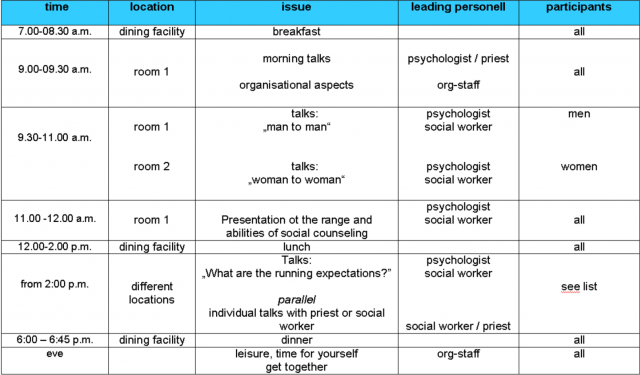 Fig. 1: Example for a schedule including single lessons and support methods during one day of the program
Fig. 1: Example for a schedule including single lessons and support methods during one day of the program
The example of a daily schedule as in Fig. 1 shows the topics of a single day of the program. Of course, due to the situation and the actual and individual needs of the participants, the schedule could be adjusted during the day.
In addition to the daily schedule, highly ranking soldiers and members of the FMoD frequently visited the participants at the venue. These visits turned out to be a very special event for all participants and demonstrating the high level of esteem for them. Hereby it was shown clearly, that the Bundeswehr really cares for the persons concerned.
Results
The evaluation of the program is carried out by the Center of Military Mental Health in the Bundeswehr Hospital Berlin presided by Colonel (private lecturer, MC) Peter Zimmermann, MD. In 2013 three Interdisciplinary Counseling Programs were evaluated by 36 participants. The feedback given was very positive:
The participants reported a strong benefit from the setting, methods and information offered. The main aspect was the excellent psychological guidance and treatment, but also the ability to get in touch with like-minded persons who experienced similar problems and to exchange experiences with them, and therefore the highest rates were given for the excellent psychological guidance and treatment as well as for the chance to meet and talk to people with similar experiences. All participants highly recommended the program to be continued.
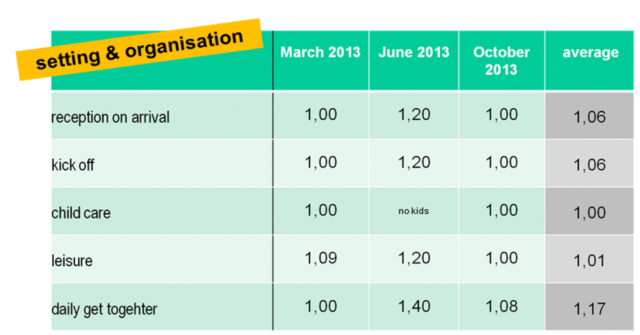 Fig. 2: Evaluation of the setting and organization; Range: 1 (extremely pleased) up to 5 (displeased)
Fig. 2: Evaluation of the setting and organization; Range: 1 (extremely pleased) up to 5 (displeased)
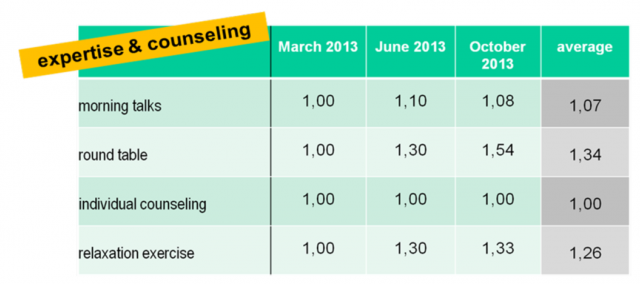 Fig. 3: Evaluation of the expertise and counseling; Range: 1 (extremely pleased) up to 5 (displeased)
Fig. 3: Evaluation of the expertise and counseling; Range: 1 (extremely pleased) up to 5 (displeased)
Conclusions
The Interdisciplinary Counseling Program has proven a positive impact on all participants. Improving the situation of the participants, the program seems to be an effective support in addition to established methods offered to soldiers only. The program has been established permanently and will take place three to four times a year. The operational execution falls to the responsibility of the Regional Medical Support Command of the Joint Medical Service of the Bundeswehr in Diez.
Date: 01/03/2015
Source: MCIF 1/15







